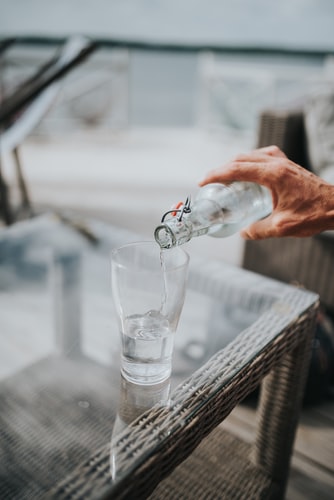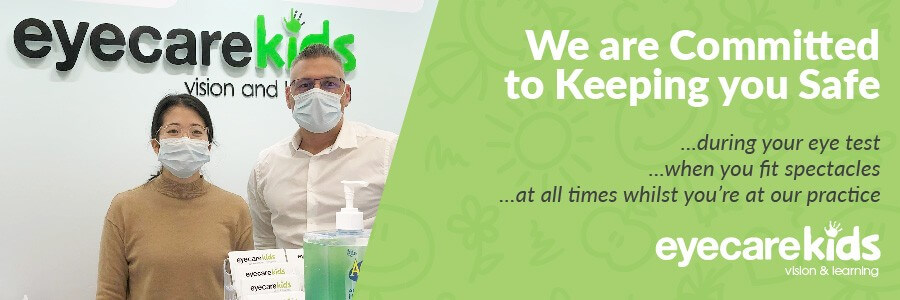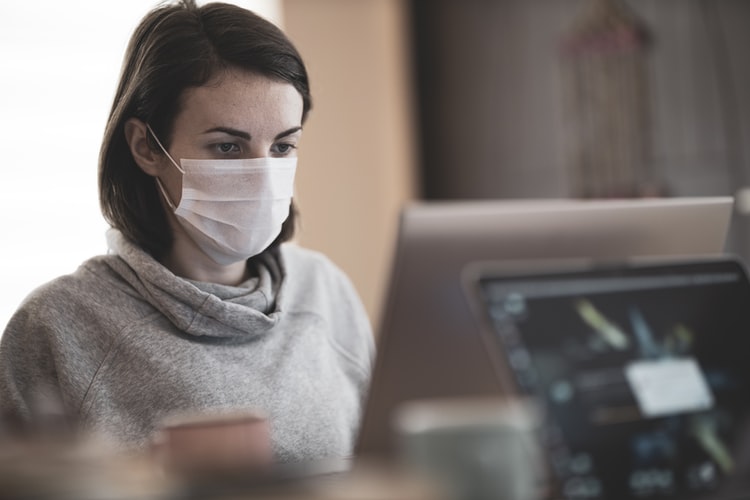As Australia, along with the rest of the world, slowly gets back on her feet to reclaim some of our lost economy, wearing face masks for extended periods of time will become the norm…at least whilst there is still no vaccine or cure available for the dreaded Coronavirus. Wearing a facemask, along with frequent handwashing, is one of the best ways to prevent the spread of the virus, which is why we request that all our patients and staff wear their face masks whilst at our practices.
However, many of our patients have complained about increased dry eye symptoms with prolonged wear of their face mask. Are you experiencing this too?
MADE: Mask-Associated Dry Eyes
This term was introduced by an ophthalmologist who noticed a significant increase in dry eye cases around the COVID outbreak period. Patients with preexisting dry eye disease complained of more discomfort, whilst patients previously not diagnosed with dry eyes are experiencing its onset. Upon further investigation, it was found out that wearing masks for long periods contributed to this surge of new cases.
What Happens to Your Eyes When You Wear a Face Mask?
Have you heard about people complaining of foggy spectacles when wearing masks? What happens is when you exhale under a mask, you release warm air. When warm air hits a cool surface, condensation can form, just like how your spectacles fog up when you walk into a warm building after being out in the cold. When your warm breath escapes through the top of the mask, it hits the lenses of your spectacles and causes them to fog up.
If you don’t wear spectacles, this same kind of “vertical airflow” from your mouth through the top of your mask causes a “steady breeze” blowing into your eyes. This leads to evaporation of your tear film, which exacerbates dry eye symptoms.
How to Prevent Dry Eye Symptoms whilst Wearing a Mask

Wearing a mask that does not fit well on your nose and cheeks directs your breath upwards. It is just like having a constant breeze blowing into your eyes, causing your tear film to evaporate. Wear a good-fitting mask. You can buy masks with a nose bridge or masks that can be shaped to fit the face.
- You can also consider taping the top of your mask to help direct the air flow downwards.
- Ask your optometrist about lubricating eye drops that will restore moisture to your dry conjunctiva and cornea.
- As much as possible, limit staying in an airconditioned room or heated room with low humidity.
- If you are using digital devices at work, try taking breaks in between. Studies show that people who work with a computer or digital device don’t blink as much, leaving the eyes dry and irritated.
- If you wear contact lenses, consider giving your eyes a break from them or ask your optometrist about better brand options that offer good hydration.

Other Supplementary Measures to Help Prevent Dry Eyes
- Get good hydration by drinking enough liquids.
- Limit your salt intake. Salty foods make you thirsty, which means they are dehydrating your body.
- Get enough sleep at night, at least seven hours. Lack of sleep has a negative effect on the ability to concentrate as well as on your eyes.
- Limit your alcohol consumption. Alcohol not only dries your eyes but also your entire system through dehydration.
If your dry eye symptoms persist (i.e., dryness, redness, itching, gritty feeling, discomfort), it is worth having an eyecare professional check your eyes so that you can experience clear, comfortable vision all day long.


